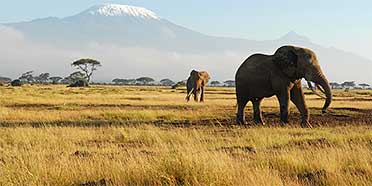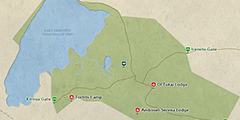
Safari Tours to Amboseli NP
-
![10-Day Kenya 6 Parks Best Wildlife Safari to Diani Beach]()
10-Day Kenya 6 Parks Best Wildlife Safari to Diani Beach
$2,195 pp (USD)
Kenya: Private tourBudgetLodge & Tented Camp
You Visit: Nairobi (Start), Masai Mara NR, Lake Nakuru NP, Hell’s Gate NP, Amboseli NP, Tsavo West NP, Tsavo East NP, Diani Beach, Mombasa (End)

Africa Starpal Safaris
5.0/5 – 150 Reviews
-
![6-Day Maasai Mara-Nakuru-Amboseli Kenya Budget Safari]()
6-Day Maasai Mara-Nakuru-Amboseli Kenya Budget Safari
$780 to $960 pp (USD)
Kenya: Shared tour (max 7 people per vehicle)BudgetTented Camp & Hotel
You Visit: Nairobi (Start), Masai Mara NR, Lake Nakuru NP, Amboseli NP, Nairobi (End)

Bienvenido Kenya Tours and Safaris
4.7/5 – 123 Reviews
-
![7-Day Exotic Luxury Escapade]()
7-Day Exotic Luxury Escapade
$2,885 to $3,929 pp (USD)
Kenya: Private tourLuxuryLodge & Tented Camp
You Visit: Nairobi (Start), Masai Mara NR, Lake Nakuru NP, Lake Naivasha (Naivasha), Amboseli NP, Nairobi (End)

Jamlan Holiday Safaris
4.8/5 – 35 Reviews

 Kenya Parks
Kenya Parks












